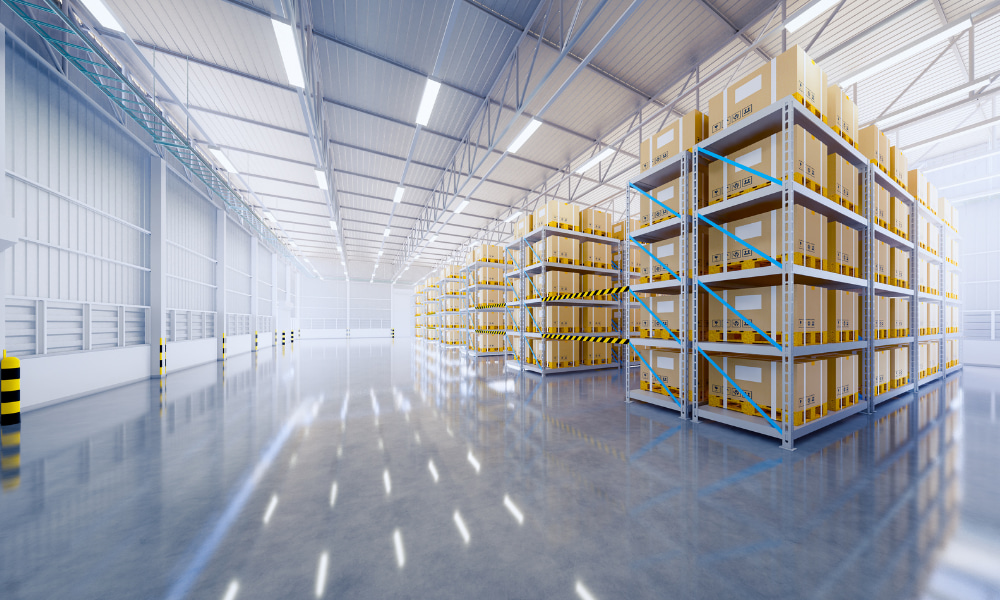The importance of paying attention to your business’s finances cannot be understated. In many cases, a workable and realistic budget is the difference between a company that survives economic ups and downs and one that doesn’t.
When you sit down to plan your business’s 2021 budget, do not forget to factor in any large-cost purchases or warehouse rentals you’re considering. If you’re weighing the pros and cons of the latter, here are a few things you need to keep in mind when adding such an expense to your budget.
What Constitutes a Warehouse
Before you rush out and start looking for a rentable warehouse, take a few minutes to familiarize yourself with the overall concept of what is and isn’t one. More than one business owner has been surprised when responding to an advertisement only to find out that the building was actually a small commercial storefront.
Keep these facts in mind:
- Warehouses have evolved over the years, and most were considerably smaller than what we’re currently familiar with.
- Older warehouses typically measured about 10,000 square feet.
- Recently, they’ve become significantly larger, with research indicating only 37% of all warehouses in existence today are less than 25,000 square feet.
- Many are actually over 100,000 square feet.

Why is this noteworthy? It’s important to have a general understanding of how much space a warehouse has available and how much you need. The budget required to rent 100,000 square feet will be considerably higher than what’s required for a mere 25,000 feet, after all.
Don’t despair if all the warehouses in your area are larger and more expensive than your business currently needs. Owners may be willing to work with small businesses to divide the warehouse into sections, meaning you only pay for what you actually require.
How are Warehouse Costs Calculated?
The better you understand what you want to use the warehouse for, the easier it will be to figure out how the expense fits into your budget. Ask yourself:
- Will I use the warehouse to store supplies and clear room in a storefront?
- Do I plan on operating a portion of my business directly from the warehouse?
You also need to be aware of all the costs connected to renting and why different warehouses cost more. The following factors play a role in cost as well as usage:
- Space
The larger the warehouse space you need, the more your rental fees will be. The more accurately you determine your exact floor plan needs, the less likely you become to rent too much space (and thus burn money that could be covering different business costs) or not having enough space to meet your needs. One advantage of obtaining less space is it gives you more leverage to receive rent concessions from your prospective landlord.
- Location
The location of your warehouse is very important. Those in less-than-ideal locales often have smaller rental prices, which may seem appealing, but you need to determine how the added distance or safety issues could impact your bottom line before you sign on the dotted line.
Renting a cheap warehouse in a not-right location may actually cost more than what you would have spent on a better-located warehouse with a somewhat higher rental rate.
- Operating expenses
Find out exactly what your rent money is paying for, as business budgets can be decimated when renting off-site spaces. The problem most often encountered is that businesses don’t clarify beforehand if operating expenses were included in the overall rental price listed in the contract, or if they were a separate expense that the warehouse owner planned on invoicing.

When you’re negotiating a warehouse rental contract, make sure there is a clause that lists how the operating expenses will be covered. These operating expenses include taxes, utilities, routine repairs, and ground maintenance, among others.
- Remodeling
Most warehouses consist of wide-open spaces. In many cases this is perfect, but there are always exceptions. If you’re considering renting a warehouse and already know you’ll need to do some renovating, make sure the type of renovations and who will be paying for them (tenant improvement allowances) is mentioned in the contract. Both you and the landlord should also know whether the warehouse has to be restored to its previous state when the lease expires.
- Insurance
Insurance can be a massive expense. It’s likely that the amount your insurance company charges will vary depending on what you’re storing, the value of the stock and equipment you keep in the warehouse, and the number of people who will work in it. The location, overall condition, and age of the warehouse will also likely impact the cost of the insurance. The good news is that you should be able to get an estimate, which makes it easy to budget for the insurance expense.
It’s important that you and the warehouse owner are very clear about the type and amount of insurance you’re expected to carry while renting. The exact type and amount of insurance should be listed on the contract. It’s in your best interest to also find out if the owner plans on maintaining insurance on the building while you’re renting it.
Get Help Negotiating Your Warehouse Rental Contract
Many businesses, particularly newer ones, find it’s easier and often more affordable to rent a warehouse rather than invest in real estate and build their own. The reason these businesses are able to rent one and still turn a profit is that they carefully calculate all the potential expenses connected to the rental and figured them into their yearly business budget beforehand.
If you’re a business owner or manager who thinks it’s time to consider adding a rented warehouse to your company operations, contact The Genau Group today to speak with an experienced commercial real estate broker about any cost and logistics questions you might have.






